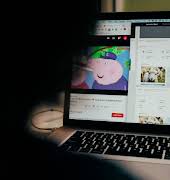
By Jennifer McShane
04th Dec 2015
04th Dec 2015
After a long working week, you should be looking forward to winding down for the weekend catching up on R&R with your family. Suddenly, your phone’s all-too-familiar beep diverts your attention. Four unread work emails are demanding your attention, silently rebuking you for not opening them immediately. You want to ignore them, but your stomach begins to feel uneasy – what if it’s a job-related emergency? So, you answer each one, already planning your next three staff meetings even though the week is scarcely over. It takes a good hour of your evening, and you find yourself worrying about the potential pitfalls that may occur over the next few days.
This is a scenario all-too-common, a new study reveals. Women are suffering from ?burnout? due to excessive working hours and stress, according to Cosmopolitan. And it gets worse: almost three-quarters (71%) said they’ve experienced an anxiety or panic attack while 40% said they’d sought medical help because of work anxiety due to stress.
The symptoms appeared to be linked to their working patterns, with more than half of the 750 women surveyed saying they obsess over work – even when they’re off the clock. Almost half said they check their work emails every day outside office hours, including weekends.
The study suggested today’s women have become ?generation burnout?, with more than three-quarters of those surveyed regularly feeling a lack of motivation. Women also reported negative emotions (82%) and 71% felt dissatisfied with life. It’s easy to see why this has become the norm. Our digitally advanced era means we’re always ?on.? Emails, work briefs, deadline notices are all instantly available on a portable device that many of us can seldom?leave alone for ten minutes.
ICYMI: 10 Ways To Ease Your Anxiety Today
?In the past, burnout happened in jobs that involved working with people – occupations such as teaching, social work or nursing – but now it has expanded beyond the caring professions,? explained Sir Cary Cooper, professor of organisational psychology and health at Manchester Business School.
?The pace of life, work overload, job insecurity and increasingly high expectations of us mean more and more people are becoming burnt out.?
More than half said they regularly neglected their appearance or health through stress, 44% said they’d drunk alone to de-stress while 71% said they over or under-ate because of stress.
Such work-related stresses can have a detrimental effect on your mental and physical health and wellbeing and should not be ignored. This writer went through the same thing: up until all hours (often 3 or 4am) obsessing over the smallest of details and walking up feeling physically sick, my stomach in knots for fear of missing something. I dismissed meals, slept very little and had no life outside of work – it was all I could think about. Eventually, something had to give. It’s still a challenge, but now I have a proper routine and set hours, and once I clock off, I stay that way (most of the time).
If you’re feeling this way, it isn’t normal. Talk to someone – a friend, a professional or your manager and find a solution. We all take pride in our work and want to succeed, but no job is worth your health. Take comfort in the fact that you’re working to the absolute best of your capabilities and can do no more than that. A work/life balance is so important.?When you’re finished your shift, turn off the phone (or emails) if you can. The world won’t end if you leave that email until Monday and even if next week doesn’t go to plan, you’re human, not a robot. You can start again. Look after yourself, embrace what makes you happy, do your best and the rest will follow.
If you want to read more on addressing anxiety read this first person piece from our Deputy Editor Caroline Foran on how she handles the foe.
Via Independent.ie























